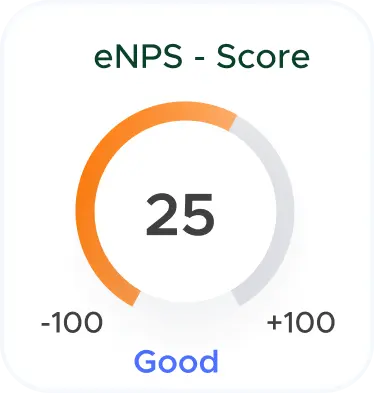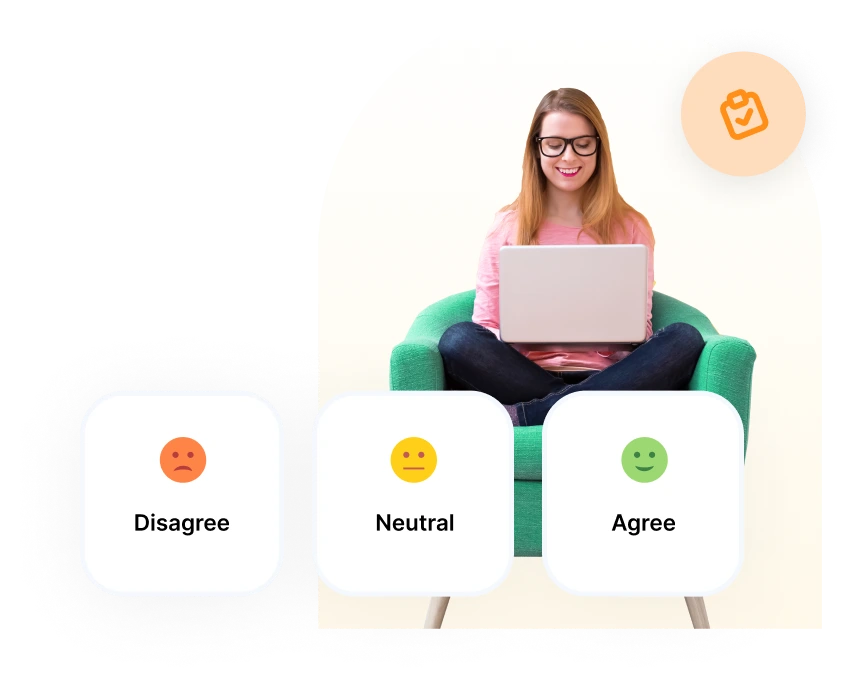✨ لا تفوت الفرصة! سجل في ندوة تقدير الموظفين عبر الإنترنت المقرر عقدها في 29 فبراير. 🎖️
✨ لا تفوت الفرصة! سجل في ندوة تقدير الموظفين عبر الإنترنت المقرر عقدها في 29 فبراير. 🎖️
سجل الآن
During the probationary period, the employer evaluates whether the recruit is capable of the work and responsibilities that they are given. They might also assess how well the person fits in with other employees, responds to authority, and behaves in the workplace.
On the other hand, new employees can also use their probation period to determine whether they are comfortable handling the job responsibilities.
A probationary period, often referred to as a trial or introductory period, represents the initial phase of employment during which the company assesses the employee’s performance and suitability for the role.
It’s a “trial period” served by a new employee in an organization. This period allows both the employee and the employer to understand each other better before making a long-term commitment.
The length of the probationary period is typically determined by the employer. This period can vary depending on the role and the complexity of the position. For example, a company may have a 6-month probationary period for all new employees but a 12-month probationary period for employees who are promoted to management positions.
In most cases, probationary periods range from 30 to 90 days, but they can extend up to six months or even a year in specific industries or for specialized positions. However, the period is agreed upon by both parties.
The probationary period is typically outlined in the employment contract under a section specifically dedicated to the "probationary period" or "trial period." In this section, details regarding the duration of the probationary period, any specific terms or conditions during this period, and the procedures for evaluation or termination may be specified.
Both the employer and the employee must clearly understand the terms and conditions outlined in this section before signing the employment contract.
Yes, there are legal considerations when setting up the probationary period. Here are some the considerations:
The probationary period for a new employee typically starts from their first day of employment. In most cases, the probationary period is outlined in the employment contract or company policies, specifying the duration of the probationary period and any associated terms or conditions.
It's important for employers to clearly communicate the start date of the probationary period to the employee and provide them with all necessary information and support to help them succeed during this initial phase of employment.
If an employee doesn't pass their probationary period, it typically means that they have not met the performance standards or expectations set by the employer during the probationary period. The specific consequences of not passing the probationary period can vary depending on company policies, employment contracts, and applicable laws. Here are some common scenarios:

هذه استطلاعات قصيرة يمكن إرسالها بشكل متكرر للتحقق من رأي موظفيك في مشكلة ما بسرعة. يتضمن الاستطلاع عددا أقل من الأسئلة (لا يزيد عن 10) للحصول على المعلومات بسرعة. يمكن أن تدار هذه على فترات منتظمة (شهرية / أسبوعية / ربع سنوية).

يعد عقد اجتماعات دورية لمدة ساعة لإجراء دردشة غير رسمية مع كل عضو في الفريق طريقة ممتازة للحصول على إحساس حقيقي بما يحدث معهم. نظرا لأنها محادثة آمنة وخاصة ، فإنها تساعدك على الحصول على تفاصيل أفضل حول مشكلة ما.

eNPS (نقاط صافي المروج للموظف) هي واحدة من أبسط الطرق الفعالة لتقييم رأي موظفك في شركتك. يتضمن سؤالا مثيرا للاهتمام يقيس الولاء. تتضمن أمثلة أسئلة eNPS: ما مدى احتمال أن توصي بشركتنا للآخرين؟ يستجيب الموظفون لاستطلاع eNPS على مقياس من 1 إلى 10 ، حيث يشير 10 إلى أنهم "من المحتمل جدا" أن يوصوا بالشركة ويشير 1 إلى أنهم "من غير المحتمل للغاية" التوصية بها.

A probationary period can benefit both the employer and the employee in several ways:
Employers can support employees during their probationary period in several ways to ensure a smooth transition and increase the likelihood of success: